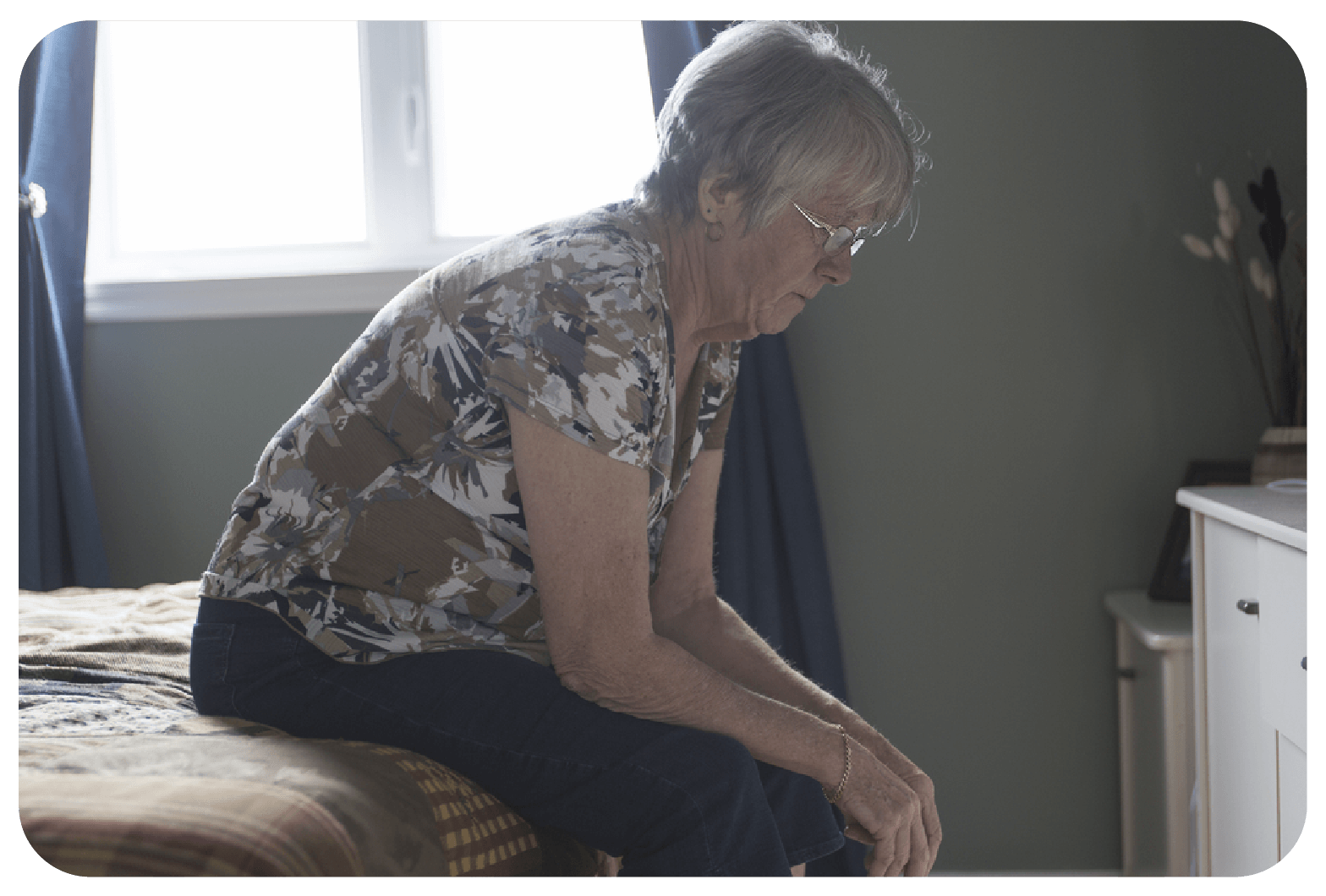
Stress and Anxiety
Stress and anxiety are common symptoms for people with chronic lung conditions. Lack of knowledge regarding the condition and the feeling of being breathless can increase anxiety levels and affect activities of daily living.
Attending the breathe programme can help you regain control and manage your condition. You can also learn different ways to cope with stress and anxiety such as breathing control and relaxation techniques.
Having an action plan to manage the symptoms of your condition will also reduce some of the fears you may have as well as reassure you about managing your symptoms when they are at their worst.
Managing Depression
Living with a lung condition is not easy. Experiencing physical symptoms such as breathlessness and coughing, feeling more tired and being less active than before are just some of the reasons that may make you feel depressed.
Talking to your health care professional or other people with lung conditions can help if you are struggling with low mood. It is important to stay active and sociable, and to learn more about your condition as this will help you to understand and overcome feelings of low mood.
You might want to get involved with a local group and you can also talk to your GP for support and advice. Talk Liverpool is a local service that can offer support with psychological health. Talk Liverpool: www.merseycare.nhs.uk

Relaxation
Reduce stress by sleeping better
We can’t control every factor that contributes to stress, but we can control making time to get the sleep we need so that we feel less irritable and more productive the following day. Getting an adequate amount of sleep each night gives us energy, clear thinking and strength to deal with life’s daily stresses.
When dealing with stress, prioritise the things that you can control. For instance, you can control your sleep environment. Be sure you are sleeping in a cool, quiet, dark room on a comfortable and supportive mattress.
Improving the quality of your sleep gives you more energy and keeps you focused to tackle the demands we face every day.
Two Minute Imagery Relaxation
Make sure that you are sitting comfortably or lying supported by pillows in the bed. Try and make sure that it is quiet.
1. Close your eyes.
2. Take a breath in and slowly sigh the breath out.
3. Try to imagine that you are relaxing in a peaceful place. This could be a room, a beach, a park, a garden. Ideally somewhere that you are familiar with.
4. Imagine yourself in this peaceful scene using all of your senses. Ask yourself these questions:-
5. What do you see? People, animals, buildings, plants, blue sky
6. What do you feel? Is it warm and sunny
7. What can you smell?
8. What can you hear? The sound of waves on the beach, people talking, children playing
Imagine this calm scene in as much detail as possible, so that you can feel that you are actually there and are immersed in deep relaxation.
